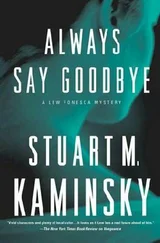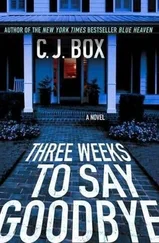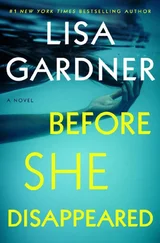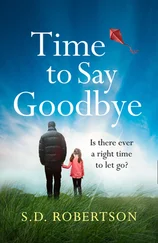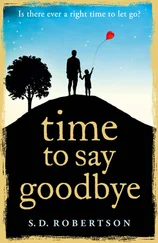She didn’t dial 911, or bother to contact the local sheriff. Mostly because she knew the boy would bolt before talking to men in uniforms. Also, what was there to say? She and the boy were at war. They knew their enemy. They understood the battle that must be fought. But in practical terms, she had nothing to report.
She had never met the man who lived in the old Victorian. She had never spoken with him, never looked him in the eye. She feared now her first glimpse of him would be her last. But she was tough, she had her Colt pistol. She liked to believe that she and the boy would have the last laugh yet.
By five p.m., as the sun sank and the shadows grew long, she yawned conspicuously. It had been a long night, followed by a longer day. She yearned to stretch out on the parlor loveseat, rest her tired bones.
They should sleep in shifts. Isn’t that what sentinels were supposed to do? She wished Joseph’s ghost could talk, because she’d never been at war before and she could use some advice.
The boy was studying her, waiting to see what she would do next.
She said, “You should take a nap. Sleep until midnight, then we both must look sharp.”
“I’m fine.”
“Nonsense, child. Even soldiers rest. What’re we gonna do tomorrow if neither of us sleep tonight?”
“He’ll come.”
“But he’s not here yet. So sleep, child. While you can.”
He scowled, but her words must’ve made some sense, or he was even more tired than she had guessed, for he nodded reluctantly and dragged himself toward the stairs.
“I’ll set a timer,” she called out softly behind him. “Wake you in six hours.”
“Three,” he said stubbornly. “Then it’s your turn.”
“Six. At my age, there is no such thing as sleep. The body seems to know that eternal rest is coming soon enough.”
The boy didn’t argue anymore. She thought his shoulders were more hunched than she remembered, his feet scuffing across the floor like a dead man walking. He expected the worst, she realized. Every night, when he went to bed, he expected not to wake up again.
She wondered how long it had been like that for him. And even if they made it through tonight, what did morning really mean for a boy like him? She thought if he ever chose to talk, he would tell stories not even Joseph could have imagined.
And she wished she were younger, because, Lord help her, she would like to keep this child. She would hold him close, smooth his hair when he woke up screaming in the middle of the night, take his hand on the bad days, when all his memories were dark and he forgot that he was still innocent and loveable and good. That the bad things were not his fault. That there were people in the world, people like her, who were proud to know him.
She had never been much for prayer. In Rita’s world, if you wanted something, you set out yourself to get it done. But she prayed now. Because night was falling. Because she loved this child. And because she knew, from the bottom of her heart, that an almost ninety-year-old woman did not stand a chance against someone like the man on the hill.
Fate was coming for her. She prayed to be strong and mostly, to save the boy.
Rita dozed off. She didn’t mean to, but she must’ve, because next thing she knew, the doorbell rang, and she startled upright, almost falling out of her little wooden chair next to the kitchen table.
The doorbell was followed by a light knock, so Rita planted her hands against the table and struggled to her feet. Curiosity, more than anything, led her to the front parlor, Colt tucked in the waistband of Joseph’s old pants, hidden by the encompassing shape of his favorite green flannel shirt.
Would the bad man be so audacious as to simply show up and knock? Maybe for all her strategizing, she had missed the most important piece of the puzzle-the boy did not belong to her, and if the man appeared with police officers demanding the boy’s return, there was nothing she could do.
She was wrestling with that piece of knowledge when she arrived at the front door, gingerly pulling back one corner of a draped sheet to peer out the side window. Not a hulking, scary man after all. Just the girl from down the street, chomping away on a wad of gum while holding the neighbor’s big ol’ black tomcat by the scruff of its neck.
Midnight must’ve done something in the girl’s yard. Maybe buried a few presents in the garden, or eaten her favorite chipmunk. Rita didn’t see what the girl could complain about, given that she lived in a double-wide and most of her front yard consisted of crabgrass. Rita had never really spoken to the girl, just seen her come and go during the odd hours of the night, probably working at a local bar doing God knows what.
The girl knocked again, looking impatient now, so Rita went to work on the locks.
She’d barely opened the door before the girl thrust the cat at her. The tomcat yowled. The girl shook him impatiently.
“This your cat?”
“That’s Midnight. He belongs next door.”
“If he belongs next door, then what the hell was he doing sitting on your patio? Looks to me like he feels mighty comfy here.”
“Midnight’s a tomcat. He feels comfortable anywhere.”
The girl scowled as if she didn’t believe Rita, taking a step into the house, still wielding the cat.
“I’m telling you now, I’ve had it to here with this damn cat. You like him at all, you’d better start keeping him inside, ’cause the next time I catch him digging up my yard, I’m filling his backside with buckshot.”
“For the last time-”
“Rita.”
The voice came from behind her, so quiet she barely heard it. Rita half-turned, saw the boy standing in the doorway. And she could tell from the look on his face that she’d made a mistake, a horrible, horrible mistake.
“Hey, Scott,” the girl said flatly. “Burgerman says hi.”
The girl flung the tomcat at Rita. Rita fell back, her feet tangling in Joseph’s baggy pants. The next instant, she crashed to the ground, her old brittle hip giving with a crack as Midnight raked his claws over her forearm, then went springing across the parlor.
“Run,” Rita cried feebly to the boy. “Run!”
The boy took off. The girl paused long enough to slap Rita across the face and produce a fistful of zip ties.
“I’ll deal with him, soon enough.” The girl dispassionately looped one tie around Rita’s tiny wrists and yanked it tight. “That’ll keep you busy for a bit, old lady.”
Then the girl slammed the front door shut and set out after the boy.
Rita remained on the floor, the pain in her hip spreading steadily down her body, rooting her in place. She could not move her legs. She could not move her hands. Her first confrontation with evil and she hadn’t even made it thirty seconds.
Her eyes stung. She thought she might cry and that bothered her so much, she rolled onto her stomach, gritted her teeth against the dizzying pain, and started to crawl.
“Joseph,” she whispered. “Be patient for my soul, brother dear. Help me tonight. One last night. Then I will be with you soon enough.”
“Spider evolution, though, has mostly murderous ends.”
FROM “SPIDER WOMAN,”
BY BURKHARD BILGER, New Yorker, MARCH 5, 2007
GUNFIRE. LOTS OF IT. IN ALL DIRECTIONS.
The deputies had spooked. Maybe the federal agents, as well. Most had drawn their handguns and were firing wildly into the trees, trying to provide enough cover for Sal to drag Harold out of the clearing, toward the massive boulder that sheltered Kimberly, Rainie, and Quincy.
Rachel Childs was fifteen feet away, hunkered down behind a tree, Glock in one hand, radio in the other. She was screaming at the top of her lungs, “Officer down, officer down. We are under fire. I repeat, we need immediate backup and medical assistance. I want choppers, SWAT, National Guard, I don’t fucking care, just get me armed choppers and a medical evac now, now, now. We are on Blood Mountain. Requesting immediate assistance.”
Читать дальше

